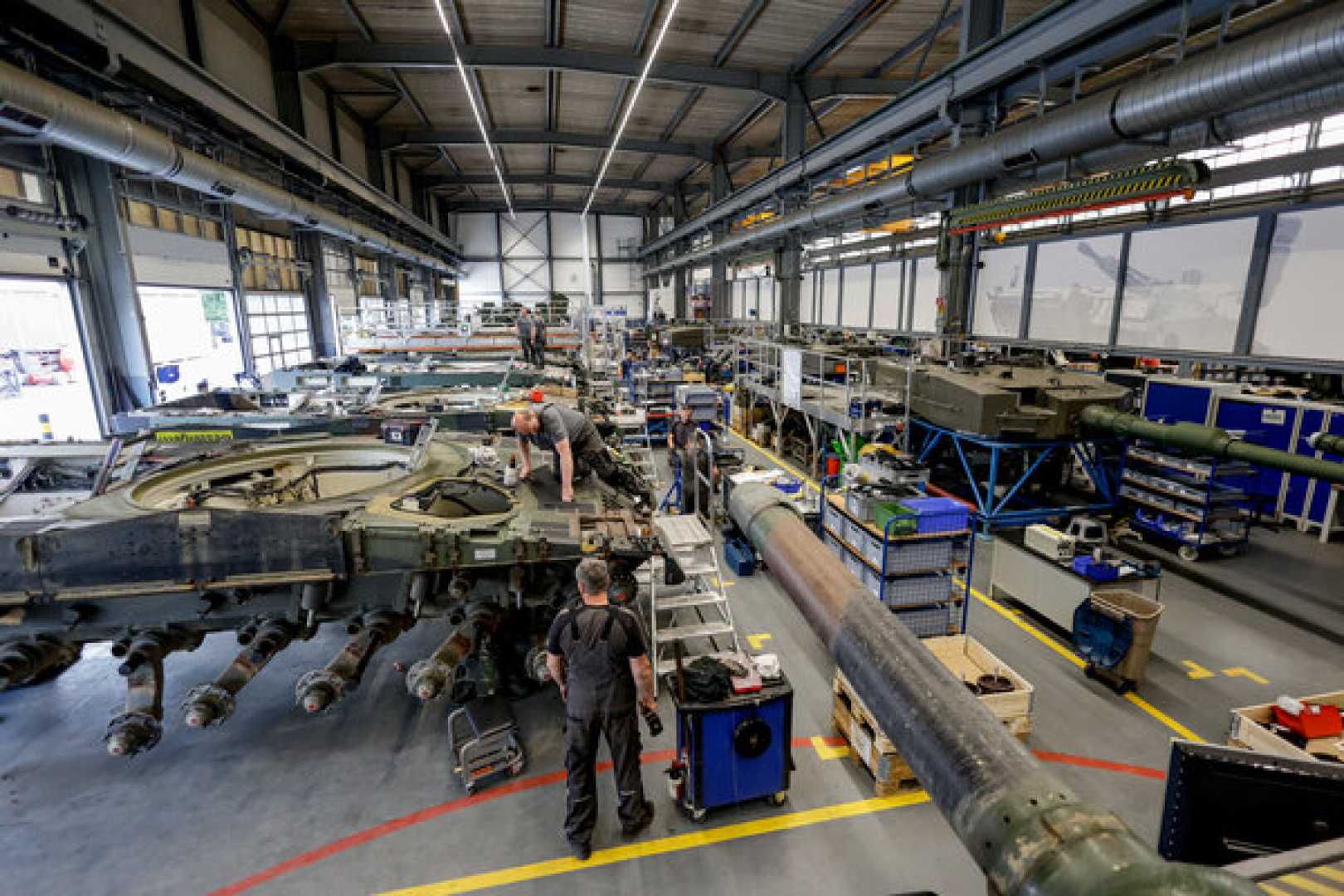Business
Investors Eye European Defense Stocks Amid Shifting Economic Landscape

LONDON, March 31 (Reuters) – Investors are increasingly optimistic about opportunities in Europe’s defense sector, helped by a historic shift in spending patterns as the European Union aims to bolster its military capabilities. The potential mobilization of up to 800 billion euros ($866 billion) for rearmament is significant in a region that has long neglected its defense budget.
Analysts suggest that the substantial German investment in defense and infrastructure, although not immediately impactful, is positioning market players for long-term gains. Mark Dowding, chief investment officer at RBC’s BlueBay fixed income team, commented, “It seems that MEGA (Make Europe Great Again) trades are now rapidly replacing MAGA trades, which have lost their appeal.” This shift mirrors a new focus on European defense stocks following Russia’s invasion of Ukraine in 2022.
According to recent data, European aerospace and defense stocks have surged by 33 percent this year, with valuation multiples surpassing those of their U.S. counterparts. For instance, Rheinmetall, a leading tank manufacturer, was briefly valued higher than Ferrari, trading at 44 times its expected earnings. This trend highlights a growing investor willingness to pay a premium for access to European defense stocks, reflecting anticipated long-term growth.
Forecasts from Citi project that defense companies within Europe can expect average annual profit growth rates ranging from 8 percent for BAE to as much as 32 percent for Rheinmetall by 2028. However, a fundamental shift is needed for the European Union to procure more defense materials from within the bloc itself, as data shows that since 2022, 78 percent of EU procurement has occurred outside its borders, with 63 percent allocated to U.S. sources.
Vontobel fund manager Markus Hansen emphasized the need to focus on pressing demand areas, particularly in artillery and equipment for infantry. Related sectors, including defense supply chains and communications, stand to benefit as well. For example, Eutelsat’s share prices climbed on speculation that the Franco-British satellite operator could help deliver internet access to Ukraine.
Evli portfolio manager Tomas Hildebrandt noted the comprehensive nature of defense, stating, “Apart from weaponry, defense is also about logistics, data and communication, and personnel. It’s a comprehensive value chain where suppliers play an important role.” Companies in construction and infrastructure also stand to gain from increased defense spending, with firms like Scania, a subsidiary of Traton, and machinery manufacturer Atlas Copco highlighted as potential beneficiaries.
The EU’s plans include options for joint borrowing and increased support to member states to enhance defense spending. Proponents of this strategy expect it to facilitate a more sustainable borrowing approach for the EU, which has long been viewed positively by investors seeking stability. Currently, European banks are showcasing considerable growth, benefitting from anticipated fiscal boosts, with shares up 26 percent year-to-date.
Berenberg’s forecasts predict that Germany’s economy should expand by about 1.4 percent in both 2026 and 2027 after a prolonged period of stagnation. The recent BofA fund manager survey indicates that banks and insurance sectors show the most significant overweight position among investors in Europe, followed closely by industrial sectors.
GlobalX senior investment analyst Trevor Yates expressed optimism regarding banks due to expected growth steepening the bond yield curve, spurring credit growth. Additionally, Southern European equities have been viewed as attractive, as they are significantly undervalued compared to core Europe and less influenced by potential U.S. tariffs.
Europe’s ongoing push for energy independence, initiated in 2022, continues to influence market dynamics. The European Commission has proposed measures to expedite permits for renewable energy projects and has earmarked 100 billion euros of Germany’s planned spending toward climate transformation. Solar power accounted for approximately 11 percent of the EU’s electricity generation in 2024, surpassing coal for the first time.
In summary, while Europe’s defense sector and overall economic outlook show signs of improvement, lingering uncertainties surrounding trade policies and economic stability pose challenges. Investors and analysts remain cautiously optimistic, navigating through complex changes in financial landscapes.












